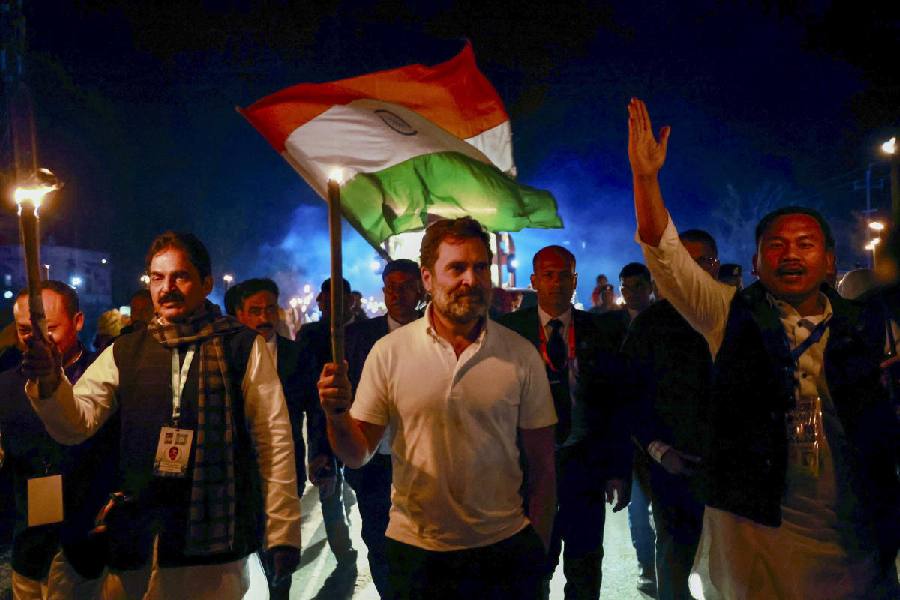Book: ROADWALKER: A FEW MILES ON THE BHARAT JODO YATRA
Author: Dilip D'Souza
Published by: Penguin
Price: Rs 250
The world has seen marches change the course of history, be it the March on Washington in 1963 where Martin Luther King made the historic “I have a dream” speech or M.K. Gandhi’s Dandi March in 1930 that challenged the brute force of the British empire or even the 1908 march by thousands of women in New York City demanding voting rights along with better pay and shorter working hours. Marches have served as tools to send a strong message to the powers that be, demand change and, simultaneously, mobilise people. At a time when hatred and majoritarianism are being pushed into the nation’s bloodstream by the ruling dispensation, numerous people have been trying to seek an outlet to show their dissent. In Roadwalker, the journalist, Dilip D’Souza, writes about his joining the Bharat Jodo Yatra at four different points and how his experience of walking with fellow yatris made him realise that while people have varied reasons for marching together, marking their presence as a statement against hatred and the current state of politics was a prominent cause.
Rahul Gandhi’s statement, “Nafrat ke bazaar mein mohabbat ki dukaan khol raha hoon” (In the market of hatred, I am opening a shop to spread love), strikes at the conscience of a common citizen who feels uncomfortable with attempts of creating second-class citizens out of our own population. But this book is not about Rahul Gandhi’s political aspirations or those of his party. It focuses on D’Souza’s personal journey and all that he came across while marching or preparing for the march. He talks of his concerns with lodging and food and goes on to narrate what people were expecting out of the yatra. He comes across individuals who have openly been critics of the Congress and some of its past decisions; yet, they came to be a part of this yatra because they felt the need to raise their voices against the tyranny of majoritarianism along with such other contemporary issues as poverty and joblessness.
The book has been divided into seven chapters: “Unease: Despair of the Past Several Years”; “Indecision: To Walk or Not to Walk; “Rationale: Why I Walked”; “Fellow Travellers: Others Who Walked, with Me and Otherwise”; “On the Inside: This Walker Looks Around”; “Hope: What It Kindles”; and “Vision: What It All Means”. These denote how D’Souza navigated the yatra and made sense of it for himself. He goes on to mention specifically how his point of contention is not based upon any party but a mentality which occasionally raises its head in our democracy and is closely related to fascism. He recalls the dark times of the Emergency that was imposed during the 1970s and relates it to the present wherein Otherisation and victimisation of anyone who dares to dissent is guaranteed.
Roadwalker is a register of the voices of many who desire to rid India of hatred and want the nation to progress not just for a few but for all.











